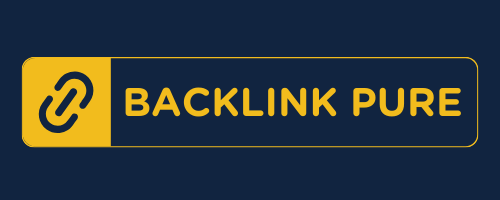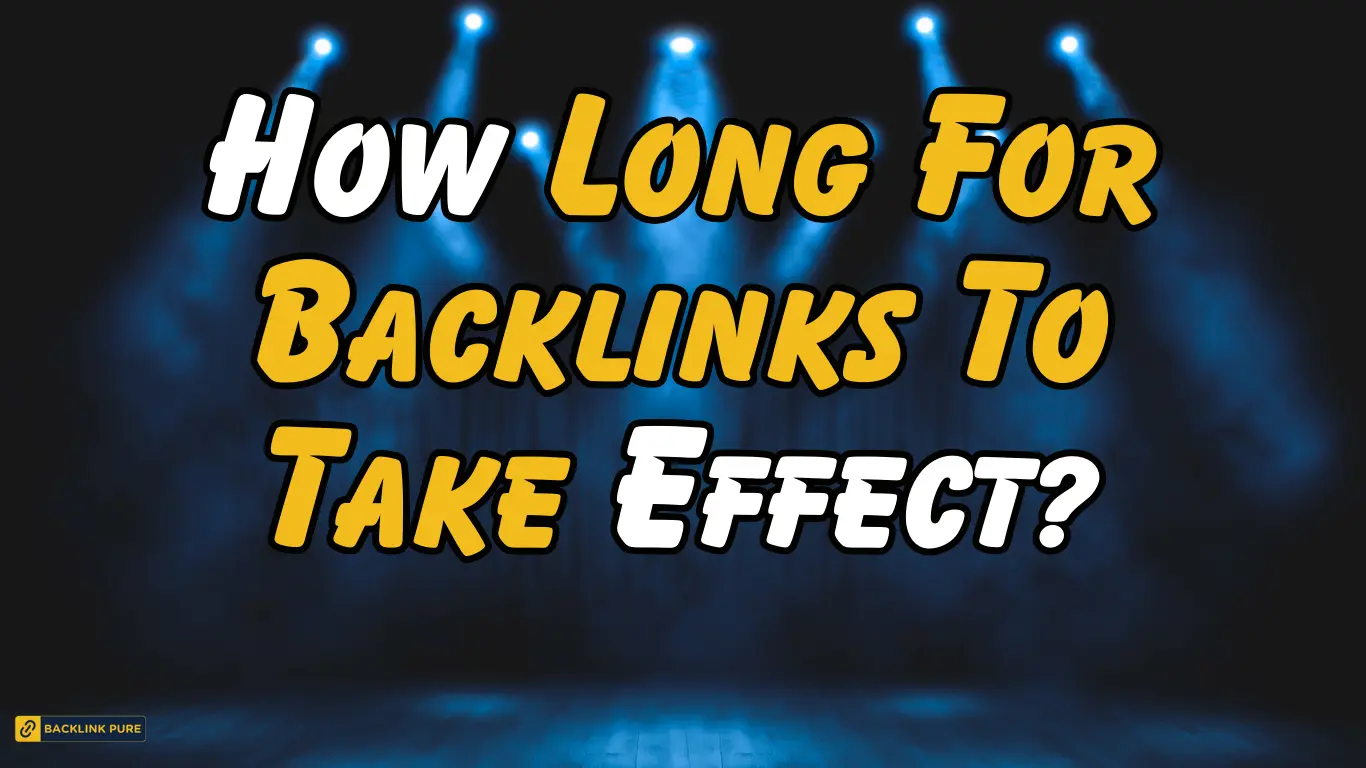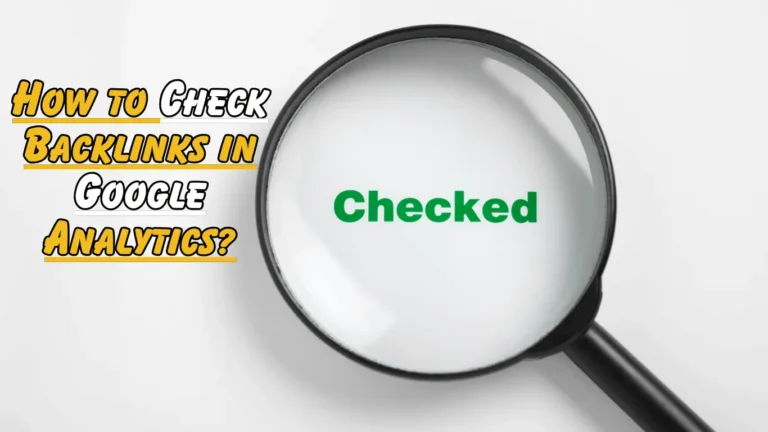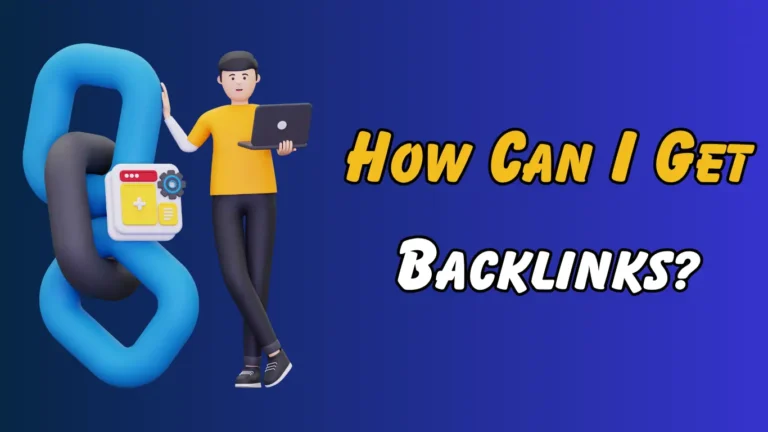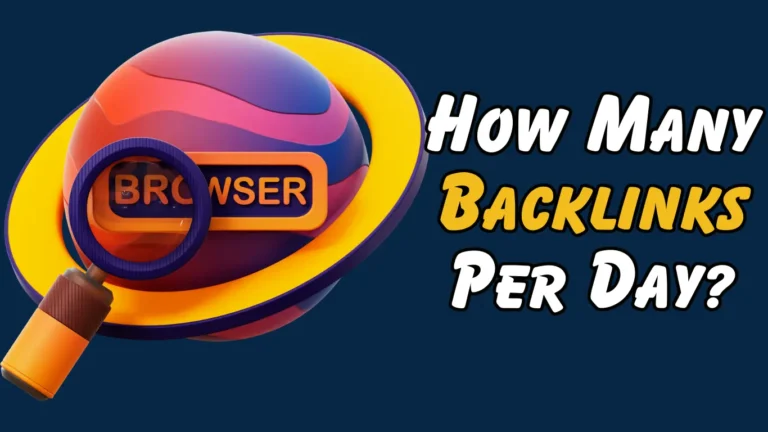Understanding the Timeline: When Do Backlinks Start Working?
How Long For Backlinks To Take Effect?
Backlinks are extremely important in improving the ranking and visibility of a website. Nevertheless, you should know how long backlinks take to work so that you can manage your expectations and optimize your strategies. The following factors affect this timeline:
How Long For Backlinks To Take Effect? Complete guide
Backlink Growth Rate.
The speed at which backlinks are acquired over time is called link velocity. If there is sudden growth in the number of backlinks, search engines are likely to see red flags that may result into penalties. Conversely, having a consistent and natural link building pace is more sustainable and effective for improving rankings with time.
Indexing Your Site
Search engines have to crawl and index pages associated with the backlinks before they can recognize and attribute link equity after acquiring them. The duration of this indexing process differs from one search engine to another depending on their crawl frequency, website authority, and freshness of the content.
Website owners can shorten this process by using tools like Google Search Console where they submit URLs for crawling as well as monitor indexing status. In addition, regularly updating and publishing high quality content will cause frequent crawls by search engines who will index new websites when they notice any newly acquired backlinks.
Crawling Time
Crawling time refers to the period taken by the search engine bots in discovering and analyzing links pointing towards a website. For instance, search engine always crawls sites but its frequency may vary according to some factors such as website authority, content freshness or server responsiveness.
Domain Authority
A metric developed by Moz which indicates how trustworthy or strong a site appears in search engines eyes is referred as domain authority. For example if high-authority domains are linking back then there are possibilities that it might help in increasing ranking potential of a site.
Improving domain authority requires implementing holistic SEO approaches including optimizing user experience, enhancing content quality as well as altering one’s backlink profile. The development of relationships with industry influencers and authoritative websites can result in the acquisition of high-quality backlinks and increased domain authority over time.
What is the SEO Backlink Indexing Process?
In search engine optimization (SEO), backlinks are vital in ascertaining the authority and visibility of a site. The way web pages recognize and evaluate these links is through Google’s backlink indexing process. Let us discuss more on what Google’s backlink indexing involves:
What Exactly is Google’s Backlink Indexing?
Google’s backlink indexing is the process by which the search engine discovers, analyzes, and incorporates backlinks into its index. When other websites link to your site, they are essentially vouching for its credibility and relevance, which Google takes into account when ranking web pages in search results.
Whenever a new webpage is created or updated, Google crawlers (also known as ‘Googlebots’) travel across the internet by following links from one page to another. This database contains a huge number of web pages that they add to whenever they come across new pages or changes made to existing ones.
However, not all backlinks are instantly indexed. Therefore, it might take some time before Google finds and indexes newly acquired inbound links pointing at your site because its algorithm prefers crawling and indexing according to factors such as website authority, content relatedness or freshness of links.
How Does Google Discover Backlinks?
Google finds out backlinks by its crawling progression, which includes systematic traversing of the web and following links from one page to another. Websites with higher authority and frequently updated contents are more prone to be crawled more often hence increasing the chances of discovering new backlinks.
Google employs different sources to discover fresh links such as:
| Source | Description |
|---|---|
| Sitemaps | Website owners can submit XML sitemaps to Google Search Console to help crawlers move around and index pages better. |
| External Links | When other websites link to your content, Google’s crawlers follow these links and eventually find and index the pages they point to. |
| Social Signals | Although not a direct ranking factor, social media shares and engagement can indirectly influence Google’s crawling as well as indexing behavior that may result in the discovery of new backlinks. |
Factors Controlling Backlink Indexing Speed
Several factors dictate how fast Google indexes backlinks:
• Website Authority: Websites with higher authority usually get crawled more often leading to faster addition of new backlinks into the index.
• Content Freshness: If a site has up-to-date content on it, then it sends out signals indicating that it is active and relevant thus helping in speeding up the process of indexing new links from this website.
• Crawl Budget: This is used by Google for distributing crawl budget among sites so as to decide how frequently their pages would be crawled. Sites with larger crawl budgets might have their backlinks indexed at a faster pace.
• Link Quality: Good quality or spammy links will be given priority by google against poor quality or low standard ones subsequently leading towards quicker indexing practices involving the former.
Factors Determining Backlink Indexing
Various factors collectively impact upon SEOs’ visibility together with authority within SERPs regarding websites search optimization engine optimization (SEO). Awareness about these factors is essential for developing effective SEO strategies. Here are some key determinants of backlink indexing:
Keyword Difficulty (KD)
Keyword Difficulty (KD) assesses how challenging it is to rank for a specific keyword in search results. High KD keywords typically face intense competition from established websites with strong authority and an extensive backlink profile. To improve backlink indexing for high KD keywords, focus on building authoritative backlinks from reputable sources and optimizing on-page content relevance.
Site Authority
Site authority, often measured through metrics like Domain Authority (DA) or Trust Flow, reflects the overall credibility and trustworthiness of a website in the eyes of search engines. Higher authority websites are more likely to have their backlinks indexed fast and positively influence linked pages’ ranking potential. Improve site authority by emphasizing on acquiring links from domains with high authoritative levels while consistently creating high quality contents.
Content Frequency Updates
Regularly updating website content signals freshness and relevance to search engines that may boost the process of indexing new links within them. Regular posting of fresh contents leads to faster index rates leading to higher visibility rankings within search results. Implement a content strategy that prioritizes regular updates and maintains relevance to target keywords and audience interests.
PageRank
PageRank is an algorithm developed by Google’s co-founders Larry Page and Sergey Brin which assesses web page importance as well as relevance based on both inbound link quantity plus quality criteria. Although public updates regarding Page Rank scores have ceased, Google still depends upon similar underlying principles when it comes to backlink indexing. Acquiring links from pages with high PageRank or authority can increase index rate thus enhancing search visibility.
Quality of Backlinks
Their indexing speed and SEO performance will highly depend on the quality of backlinks. That is, without a doubt, if high-quality links that are sourced from authoritative sites and those relevant to your niche are the best bet in this regard. In order to have a successful link-building strategy, you should focus on diverse good quality backlinks and avoid low-quality or spammy sources.
Domain Age
Backlink indexing as well as SEO performance is indirectly affected by domain age although it is not an actual ranking factor. Generally, established domains with longer histories tend to rank higher due to greater authority and credibility which could lead to better indexing of new backlinks. However, since domain age cannot be controlled work towards establishing a solid backlink profile through creation of valuable content that enhances website authority.
Diversity in Backlink Sources
Building a natural and robust link profile that appeals to search engines requires diversification of one’s backlink sources. With regards to improving index rates while at the same time enhancing overall SEO performance, obtaining leads from various types of domains such as online directories for industries within your niche, socially connected platforms and exclusive regions could be helpful.
Effective SEO Keyword Strategy
Efficiency in keyword optimization necessitates profound keyword research targeting relevant keywords with moderate or low difficulty levels prior to optimizing content accordingly. On page anchor text, meta data and content can be improved regarding relevancy and also increased recognition of relevance for some pages linked through other pages strategically.
On Dealing with High Keyword Difficulty
The major obstacle for SEO practitioners who want their websites ranked for competitive keywords is High Keyword Difficulty (KD). In order to understand how high KD can be managed effectively:
- Long-Tail Keywords: Use long-tail keywords that have competition at the lower side but tend t improve conversions thus avoiding difficulties associated with high KDs.
- Content Optimization: Optimize on-page components such as title tags, headers among others for target keywords while creating comprehensive, high-quality and relevant content. This should also accord with the intent of the users.
- Strategic Backlinking: Acquire backlinks from quality sources to enhance domain authority and rankings for high KD words.
- Content Promotion: Use social media, email outreach and influencer partnerships to increase your content’s visibility and attract natural backlinks.
- Patience and Persistence: Know that ranking for high KD keywords is a matter of time and dedication. Continuously monitor performance metrics and refine your SEO strategy based on insights and trends.
How Can You Get Your Backlinks Indexed?
Indexing backlinks by Google will definitely maximize their influence on the optimization of your website for search engines (SEO). However, while the search engine automatically crawls online platforms there are some proactive steps you can do to make sure they get discovered as soon as possible so as to be indexed accordingly at Google etc. Here’s how:
Check Google’s Index
Prior to implementing any indexing tactics, check whether your website or its related pages have already been indexed by Google search engine. To do this you need to simply perform a site search using “site:” operator followed by your website’s URL e.g “site:example.com”. If it is among the listed results then it means that your site has been indexed by google.
How to Get Your Links Indexed
- Google Search Console: A service provided by google that allows webmasters to monitor, maintain, and troubleshoot their site in google search results; GSC for short can help a lot when involving indexing purposes. Under GSC click on URL inspection tool in order to submit individual URLs for indexing reasons whereby if it is not indexed already you will have options for requesting indexation after typing the specific URL into the space given.
- Using XML Sitemaps: These perform as an online map for the search engines that provides information about the structure and organization of the content on your site. Including backlinks in your website’s XML sitemap can make it easier for Google to find and index them. Up-to-date sitemaps are important to show what URLs you’d like indexed.
- Robots.txt: The robots.txt file is a text file located in the root directory of your website that instructs search engine crawlers about which pages or directories should not be crawled or indexed. While using robots.txt to block sensitive or irrelevant content is essential, ensure it does not inadvertently prevent Google from indexing your backlinks. Double check your robots.txt file so that it doesn’t disallow access to important pages having backlinks.
Conclusion
It is very important that you get all your backlinks indexed by Google so they will have maximum impact on SEO performance of your website. Google Search Console, submitting via XML sitemaps as well as configuring properly your robot.txt file will increase chances of quick discovery and indexing of such links by Google’s crawlers among other things. Always monitor how indexable a website can be and make necessary changes when required to maximize its visibility as well as search engine rankings.
